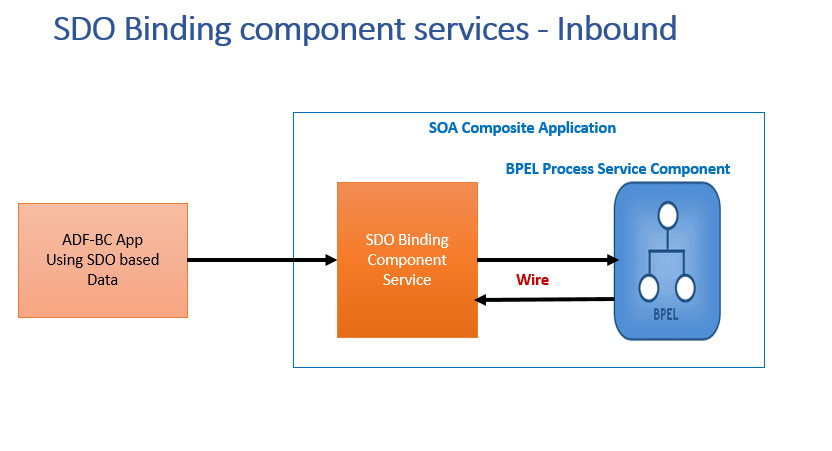This blog discuss about the usage of SDO (Service Data Objects) Inbound Integrations with the ADF-BC Application. Refer the blog BPEL Data Operations using Entity Variables in SOA 12c to understand how to perform the BPEL data operations using the data provider services through the usage of entity variables.
Till Release 10.X, only DOM format variables were supported. From Release 11g onwards, SDO format variables were introduced and supported in the BPEL Process Services and components can be converted into required formats as per the Business Process need (Example – Usage of ASSIGN Activity to convert the DOM based BPEL Process Service Component to SDO based format and vice –versa
Unlike DOM and SDO based variables, Entity variables supports SDO based data and enables a unique key which binds the value to data. A common Example could be Create Supplier Operation or Create Purchase Order using BPEL Process Service. This unique key gets stored in the dehydration store. When the data is to be retrieved, Oracle BPEL Process Manager performs the below steps:
1) It uses the Bind Entity Activity to map the unique key
2) Executes the data provider service to retrieve the data places into memory

The above given diagram depicts the SDO Inbound Integration where the ADF-BC Application Invokes the BPEL Process Service. The BPEL Process Service Component is converted from SDO based variables to DOM based Variables and executes the services as per the received operation.